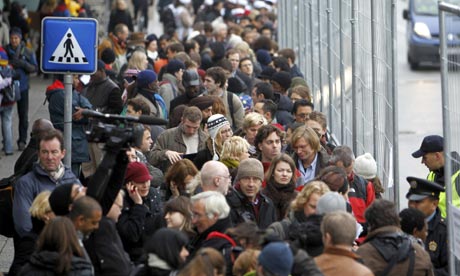
Hamilton at Copenhagen- Lulus-back-in-town
Twelve years ago, as the Kyoto conference drew to a close, it was clear that the protocol had at least two gaping loopholes. One, dubbed “Russian hot air”, referred to the excessively high target negotiated by Russia.
A zero per cent increase in allowed emissions over 1990 levels by about 2010 would in fact permit a very large increase in Russian emissions because of the collapse of Soviet industry in the early 1990s. Russia’s emissions have still to return to their 1990 levels and the difference represents a large pool of surplus emission credits that can be sold on the international market.

